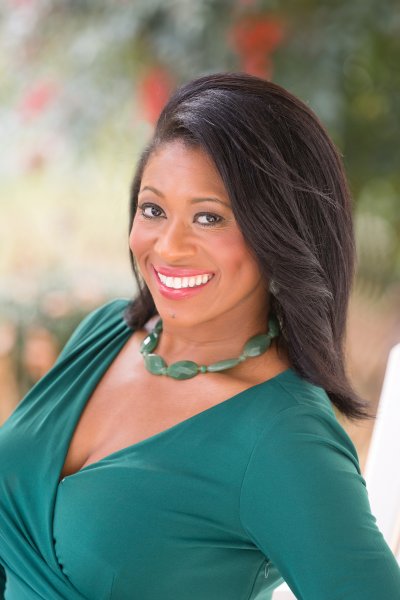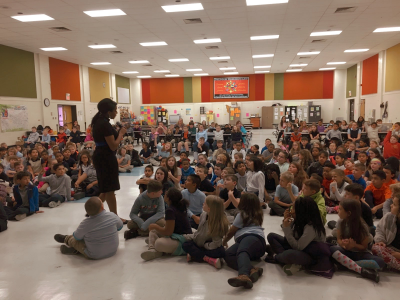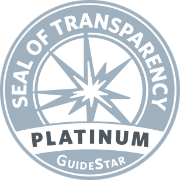Kimberly Holmes-Iverson is a morning anchor at WBOC-TV on the Eastern Shore of Maryland, Delaware, and Virginia. WBOC- TV is a proud participant in the Multiplying Good Media Partner Program. Media Partners use the power of recognition and legacy of the Jefferson Award to celebrate grassroots, unsung heroes. In addition to being the face of WBOC-TV's Jefferson Award initiatives, Kimberly has been a mentor, volunteering with Big Brothers, Big Sisters, and even been the leader of a local Girl Scout Troop. Additionally, she has crearted an organization to serve widows and gives selflessly in her role as a foster parent. We asked her a few questions to learn more about how her service work and racial identity intersect! Check out the Q&A below.

1. As a Black woman, how has service to others benefited you and your community?
Black people have and continue to face countless challenges in this country, and those who can help are called upon to do whatever they can. The end result will mean a better place to live in and a brighter future for African-Americans, and, thus, all Americans. And as a Black woman, I've been taught service is a necessary part of life. Not everyone has been afforded the same opportunities, educational path or positive experiences that God has given me, so we must help others as much as we can. And by doing that, God will bless you, and He always has!
2. Why is it essential for the community of people activating service to others to be a diverse group of people?
It's difficult to know the true root of a problem or the full reach of the pain if you haven't been personally touched by the issue. Solving the world's problems will require all of us to work together, but we must also have voices that directly represent all of the people who need the help in order to be able to find and implement a solution that is truly helpful.

3. In your opinion, what is the biggest/most significant impact service to others can have on Black communities? Why?
The biggest impact you can have is to change someone's path and allow them to be one step closer to living, breathing, and walking into a wholly positive, healthy, and happy life. As a foster parent, I work hard to ensure each child who ends up in my home has time to recharge her or his batteries and feels safe and loved enough to start to imagine bigger (and more positive) dreams for him or herself. It's hard to imagine good things can happen to you when you've only experienced the negative that life can throw at you.
4. As a black person in America, have the COVID-19 pandemic and the violence against Black Americans affected your ability, willingness, or desire to serve? In what ways?
2020 and 2021 have been hard and heavy. It's reminded me we all have much more work to do. I'm currently pregnant with my first child, and the things my husband and I have witnessed, read, and that I have reported on have taught us that it's going to take all of us getting involved, staying involved, and continuing to push to affect change and make this world the place our daughter deserves to live in.
5. What is your earliest service-oriented memory?
Service has always been an important part of my life. My parents instilled the value of giving back and helping others in me at a young age. By the time I reached my teenage years, volunteering seemed second nature. I spent my childhood in the Middle East, so whether it was helping my mom cook a homemade Thanksgiving meal for the troops stationed near us in Saudi Arabia or tutoring younger children for free, giving back feels as if it's in my blood. In college, I became a member of the historically Black sorority, Delta Sigma Theta Sorority, Inc. Service to others is a big tenet of the organization. My Sorors and I would spend hours each week mentoring and tutoring children, hosting clinics & programs to encourage others, and finding other ways to enrich the lives of fellow students and those in our community.
6. Tell us about your service work.
I currently am involved in a varied collection of projects. I am a treatment-level foster parent who currently provides respite (or temporary) care for children. I run a grief organization that provides support to widows; it's a passion that stems from my personal walk with grief that began in 2016 after losing my first husband, Rasheed Wiggins. My organization, Still His, provides grief gift boxes to the widowed. I also host events and brunches for widows in my area. It offers a chance to form unique friendships with those who know the heartache and pain only the bereaved could understand. I also love supporting children and youth organizations however I can, which includes helping with service projects, speaking at events, and mentoring countless young adults. The last year has been an odd one because most of my work has had to be virtual due to the pandemic, but I look forward to lending a hand however possible.
7. How does your racial identity affect your experience as an advocate for service to others?
Being a Black woman who has a heart to serve has meant finding ways to help mankind in general, but especially loving being a part of projects and acts of service that benefit people of color. I tend to empathize with the hurting and those who are mistreated because of personal experiences and the history of my ancestors
Our blog series, Exploring the role of service in the Black Community, is an interview series with participants from our Students In Action, Media Partner, and Recognition Champions programs. For the next three weeks, we're giving the Multiplying Good community an intimate look into how their unique experiences and racial identity impact their service work.
The blog series will culminate with a Facebook Live conversation among all the participants. It will be held on Thursday, February 25, and moderated by Mr. Taj Tashombe, Vice President of Government Affairs, Oakland Athletics/Multiplying Good Bay Area Board Member. Like our Facebook Page to get notified when we go LIVE so you can tune-in.

